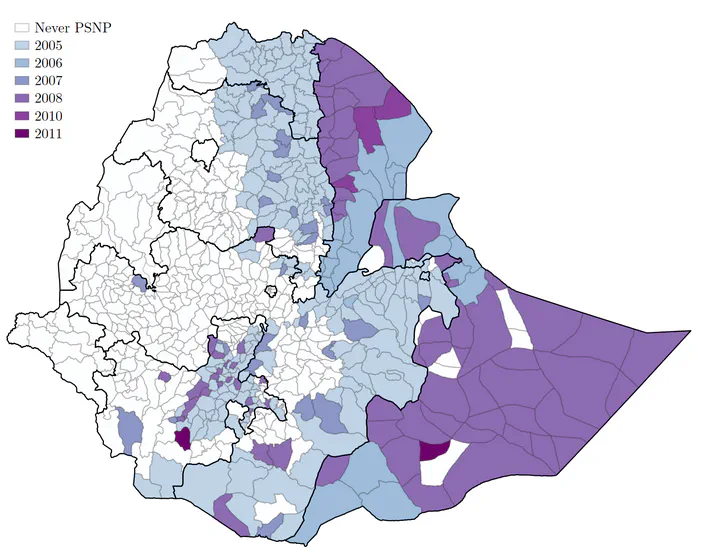The double edge sword of social transfers: evidence from Ethiopia
Jan 1, 2026· ·
0 min read
·
0 min read
Jérémy Do Nascimento Miguel
 Map of implementation of the Productive Safety Net Program.
Map of implementation of the Productive Safety Net Program.Abstract
This article examines how cash versus in-kind transfers affect local economies using Ethiopia’s Productive Safety Net Program (PSNP), Africa’s largest social protection program. Exploiting the progressive nationwide rollout and using a staggered difference-in-differences approach, I analyze impact on local prices and market adjustments from 2001-2015 to identify causal effects. Cash transfers increase local prices by 5%, while in-kind transfers show no significant average price effects. However, prices of the food items distributed fall significantly in localities receiving in-kind transfers. Effects are strongest in districts with higher treatment intensity, more isolated, and lower initial agricultural productivity. A one percentage point increase in transfer share drives a 1.02% price increase in cash-dominant districts versus a 0.82% decrease in food-dominant districts. Several mechanisms explain these differential effects: cash transfers relax supply constraints by improving agricultural productivity through increased fertilizer application, partially offsetting price inflation. Market power among suppliers and a lack of market access amplify price effects in cash-receiving areas. However, the increase in price entail welfare costs: children under five show higher rates of underweight and wasting in cash-dominant districts. These findings highlight the importance of tailoring social protection program design to local market conditions and considering transfer modality effects when scaling up interventions.
Type
Publication
JOB MARKET PAPER - New Draft Available